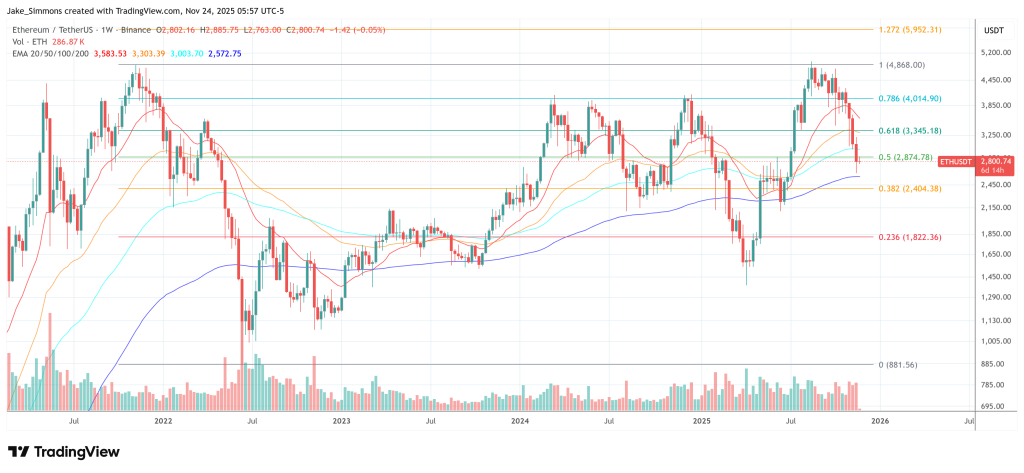
Ethereum co-founder Vitalik Buterin is sounding the alarm over X’s new “present which nation the account is from” transparency tag, arguing that the function can be shortly undermined by spoofing whereas exposing some customers to unacceptable privateness threat. X has just lately expanded its “About This Account” floor, letting customers see metadata corresponding to an account’s nation or area alongside creation particulars, a transfer the platform positions as a software in opposition to manipulation and inauthentic habits.
Ethereum Founder Sounds The Alarm
Buterin’s first submit acknowledged near-term upside however framed the system as fragile beneath adversarial stress. “Within the brief time period it is going to have a number of optimistic results,” he wrote. He then predicted that refined operators will adapt sooner than the platform can harden the sign: “the subtle actors will discover methods to fake to be from international locations that they aren’t,” pointing to rentable passports, cellphone numbers, and IP infrastructure that can be utilized to fabricate believable provenance.
His core asymmetry declare was blunt: “Getting 1,000,000 accounts with faux location can be medium-hard, getting a single account with faux location, after which getting it to 1,000,000 followers, can be straightforward.” In his view, the function will drift from authenticity test to theater, with overseas affect accounts displaying Anglosphere tags to amplify credibility: “In six months, the actually-[random Eurasian country]-based political troll accounts with names like ‘Defend Western Civilization’ or no matter will all have ‘USA’ or ‘UK’ as their location tags.”
The Ethereum founder harassed that he was describing incentives, not endorsing them: “That is what I feel will occur, not what I want.” What he needs as a substitute is a provenance system that yields “extra visibility into how folks from totally different communities take into consideration totally different points, in a means that’s not straightforward to spoof,” and that defines communities by means of broader, emergent proof moderately than “a slender set of extremely legible credentials like international locations.”
He concluded that “making such a system adversarially strong won’t be straightforward,” a critique in step with the crypto safety view that identification indicators decay as soon as attackers should purchase or synthesize them at scale.
Shortly after, the Ethereum founder sharpened his objection to consent and security. “I thought of this extra and I feel responders are proper that revealing the nation non-consensually with out providing any opt-out possibility (not even ‘cease utilizing your account’) is fallacious,” he wrote.
He famous that country-level disclosure is broadly non-identifying, but warned that edge circumstances matter: “there are some folks for whom even a couple of bits of leakage are dangerous, and they need to not have their privateness retroactively rugpulled with no recourse.” Privateness advocates on X have echoed this concern, particularly for customers in authoritarian or battle settings who concern location metadata can help harassment, surveillance, or authorized concentrating on.
X has already confronted questions on accuracy and implementation, with experiences that some nation tags appeared incorrect and the platform adjusted visibility whereas promising fixes. That instability reinforces the Ethereum founder’s warning: if tags are inferred from IP, app-store, or telecom knowledge, they’re susceptible not solely to deliberate spoofing but additionally to routine distortions like VPN use, SIM swapping, or account resales.
At press time, Ethereum traded at $2,800.

Featured picture created with DALL.E, chart from TradingView.com

Editorial Course of for is centered on delivering completely researched, correct, and unbiased content material. We uphold strict sourcing requirements, and every web page undergoes diligent evaluation by our group of high know-how consultants and seasoned editors. This course of ensures the integrity, relevance, and worth of our content material for our readers.








